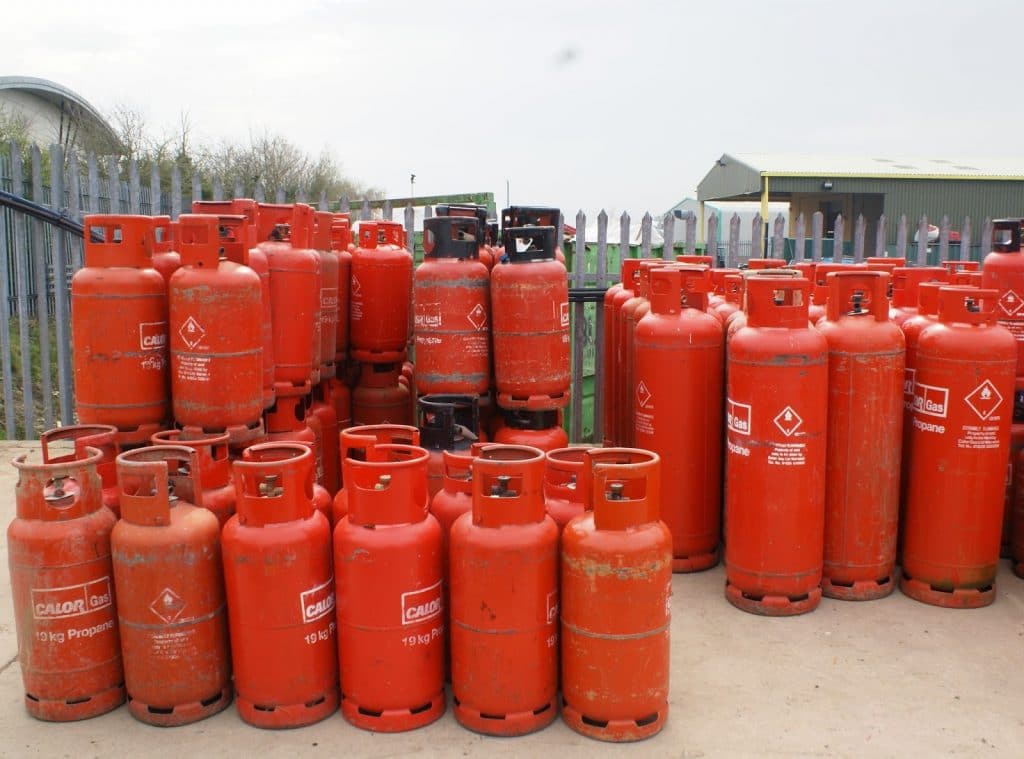Business
Retailers give reason for cooking gas scarcity, price hike

The Liquefied Petroleum Gas Retailers Association of Nigeria (LPGAR) has absolved its members of blame for the ongoing scarcity and surge in the price of Liquefied Petroleum Gas (LPG), commonly known as cooking gas, across the country.
Chairman of the association, Mr. Ayobami Olarinoye, who operates under the Nigeria Union of Petroleum and Natural Gas Workers (NUPENG), said in a statement issued on Saturday in Lagos that retailers were not responsible for the price escalation, which he attributed to persistent supply constraints.
“The recent scarcity and spike in LPG prices have brought untold hardship to millions of Nigerian households and businesses. We understand this pain and feel compelled to clarify the role of retailers in this crisis,” Olarinoye stated.
He was reacting to remarks by the President of the Nigerian Association of Liquefied Petroleum Gas Marketers, who had reportedly accused retailers of driving up prices.
Describing the accusation as “unfair and misleading,” Olarinoye explained that retailers do not participate in importation or operate depots but merely buy from gas plant owners to sell to end users.
“Our operations are limited to buying gas from plant owners and selling to end-users. Many of us travel to neighbouring states to purchase LPG at high costs due to supply shortages, which naturally affects retail prices,” he said.
According to him, although the Dangote Refinery has maintained stable prices, irregularities in supply have triggered a demand-supply imbalance that keeps pushing prices higher.
“Some retailers have had to shut their outlets for days or weeks because they couldn’t access supply, resulting in huge business losses and operational strain,” he said.
Olarinoye noted that the situation is purely market-driven.“If plant owners increase prices, we have no choice but to adjust ours. We cannot be expected to sell at a loss,” he explained.
He pointed out that while the Dangote Refinery plays a key role in domestic gas supply, it lacks the capacity to satisfy Nigeria’s total annual LPG demand, which has grown from less than one million metric tonnes to over 2.3 million metric tonnes.
He added that major off-takers, who should complement Dangote’s output through importation or supplies from the Nigeria Liquefied Natural Gas (NLNG), have slowed down operations due to uncompetitive pricing.
“Dangote sells a 20-metric-tonne truckload of LPG at about N15.8 to N16 million, while off-takers offer the same quantity at N18.5 to N18.6 million. Naturally, buyers opt for the cheaper option, reducing importation and worsening scarcity,” he said.
He further noted that the recent strike by the Petroleum and Natural Gas Senior Staff Association of Nigeria (PENGASSAN) worsened an already fragile supply situation.
“Even after the strike was called off, supply has not stabilised. Some plant owners have paid for gas from Dangote but are yet to load due to long queues and limited availability,” he explained.
Olarinoye urged the Federal Government to intervene by bridging the price gap between Dangote and other suppliers to stabilise the market and ensure steady distribution.
“We don’t know the exact landing costs from NLNG, but if off-takers were making enough profit, they would price competitively. As it stands, they’re reluctant to restock,” he said.
He stressed that the ongoing crisis is rooted in systemic supply challenges rather than retailer exploitation, calling for cooperation among all stakeholders.
“Blaming retailers will not solve anything. We urge the government and industry players to work together to boost domestic production, encourage competitive pricing, and stabilise supply nationwide,” he said.
Olarinoye assured consumers that the union remains committed to restoring stability in the market.
“We share the public’s frustration and are working toward solutions. Until then, supply and demand will continue to drive market prices,” he noted.
Recent reports indicate that the price of cooking gas has soared nationwide due to supply bottlenecks and rising logistics costs. In many areas, a kilogram now sells between ₦1,800 and ₦2,000, up from about ₦1,200 earlier in the year — a situation that has forced many households to revert to charcoal and firewood for cooking.





















